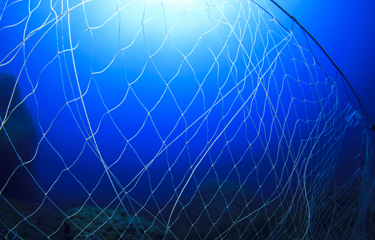Global Ghost Gear Initiative report provides recommendations for government action

A new report has foundthe best way to reduce the impact of lost fishing gear is to enforce existing rules.
The report, “Ghost Gear Legislation Analysis,” was jointly written bythe World Wildlife Fund (WWF), Ocean Outcomes, and Ocean Conservancy’s Global Ghost Gear Initiative (GGGI). It assesses existing government legislation and policies addressing ghost gear and provides recommendations to governments to strengthen existing efforts and other actions to address lost, abandoned, or discarded fishing gear.
Enforcement of existing rules was cited as the best way to reduce the impact of ghost gear, but passing new or amended legislation, developing governmental plans of action, developing fishery plans of action, and passing new fishery regulations was also a priority. The authorts surveyed 34 ghost-gear stakeholders — including 16 government actors — across 24 different countries to compile the report.
Extended producer responsibility (EPR) programs covering fishing gear were also considered, and the report said EPRs have "significant potential" as an effective ghost-gear prevention strategy.
“Like all aspects of plastic pollution, there is no one-size-fits-all approach that will solve the ghost-gear problem,” GGGI Director Ingrid Giskes said. “The findings of this report reinforce what we’ve long suspected: government action on ghost gear, as it exists now, is not enough. To effectively take on ghost gear we need a suite of locally viable solutions, and we need them to be implemented now.”
Gear-marking was the most common type of gear prevention policy used – close to half of respondents reported it is used in their country. Comprehensive national ghost-gear action plans were one of the least-implemented strategies.
The report includes an overview of current legislation, international instruments and conventions, non-binding guidelines and resolutions, regional fisheries management organizations, and management measures in place. It also includes case study examples of best practices including the laws for shellfish pots in the U.S. state of Washington, the Marine Living Resources Act in Norway, the Common Fisheries Policy in the European Union, and the Ghost Gear Fund in Canada.
The report identifies ghost gear as the single deadliest form of marine debris to sea life and a major threat to healthy fisheries and those that depend on them for food and livelihoods. An estimated 90 percent of species caught in lost gear are of commercial value.
“Some of our most-beloved marine species are threatened by ghost gear, including sea turtles and dolphins. Entanglement can cause prolonged suffering, long-term physiological impacts, and even death across the world's oceans,” WWF Director of Wildlife Policy and Wildlife Conservation Leigh Henry said. “Preventing these plastics from strangling our wildlife and our oceans requires firm government commitment, and strong laws provide the cornerstone in the foundation for success."
The producers of the report said through identifying the need for legislation, developing plans of action, and striving for specificity in implementation, governments can ensure more effective solutions to addressing this form of marine debris.
Photo courtesy of Rich Carey






Share